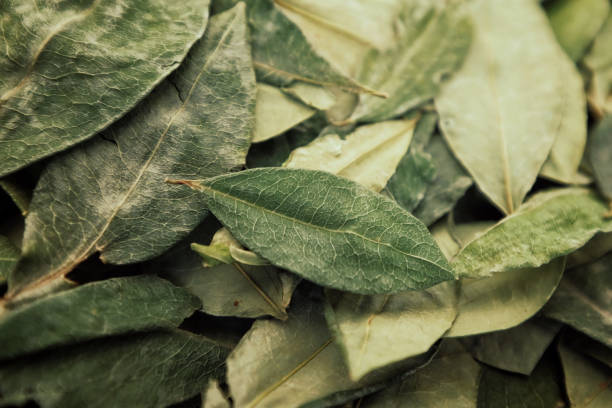Psilocybin
Move Over Cannabis, Cocaine Wants to Go Legit
Like cannabis, there seem to be two developing markets for coca leaves.
The post Move Over Cannabis, Cocaine Wants to Go Legit appeared first on Green…

Coca leaves – like many plants – have recognized beneficial qualities. South Americans have long used the plants as a medicinal product, and raw leaves are often sold in stores.
But the cocaine derived from the coca plant is highly addictive, which earned the plant a spot on the U.S. controlled substances list as a Schedule II drug (safer than cannabis). So, it isn’t a stretch to think that for all the efforts made to reschedule cannabis, companies wouldn’t begin to take a new look at coca leaves.
Recently a few companies have stepped up to reeducate the public.
In addition, Health Canada signaled that it is willing to accept cocaine within the confines of the Dealer’s License, which allows companies to sell restricted products to other licensed dealer, such as pharmacists, practitioners, hospitals, or the holder of a section 56(1) exemption for research purposes under the Canada’s Controlled Drugs and Substances Act.
It does not permit a licensee to sell controlled substances to the general public. It also doesn’t mean that people can get a medical card to buy cocaine.
Like cannabis, there seem to be two developing markets. One targets the plant-based medical market , and the other more benign version used for beverages and as a food additive.
Here are four companies already jumping into the coca industry:
Filament Health
Green Market Report previously reported that Magdalena Biosciences, the joint venture between Filament Health (OTCQB: FLHLF) (NEO: FH) and Jaguar Health, imported coca leaves to Filament’s Vancouver, British Columbia, research facility.
The import, authorized by the Peruvian Health Authority and obtained from Peru’s only sanctioned coca distributor, Empresa Nacional de la Coca, will be used in research for neuropsychiatric applications.
Both Magdalena and Filament Health said they were working toward full compliance with the Nagoya Protocol, an international agreement on the fair use of genetic resources and the recognition of indigenous and local communities’ traditional knowledge.
Adastra Holdings
Green Market Report also previously reported on British Columbia-based Adastra Holdings Ltd. (CSE: XTRX) obtaining permission from the Canadian government to begin selling cocaine and psilocybin – which regulators clarified would only be allowed to pharmacies, hospitals, and researchers.
The license only grants the company the ability to sell up to 1,000 grams of psilocybin and allows it to “interact” with 250 grams of cocaine, but it can import coca leaves with which to “manufacture and synthesize” cocaine.
“We proactively pursued the amendment to our Dealer’s License to include cocaine back in December 2022. We will evaluate how the commercialization of this substance fits in with our business model at Adastra in an effort to position ourselves to support the demand for a safe supply of cocaine,” CEO Michael Forbes said.
Safe Supply
Safe Supply Streaming Co. Ltd. (CSE: SPLY) plans to invest in and incubate companies at the forefront of the third wave of drug policy reform. The company said in a recent filing that it plans to participate in the supply chain to provide a safe supply of narcotics, from securing supply and importation of coca leaves, through processing, product manufacturing, and distribution.
“The burgeoning safe supply ecosystem is more than just a business; it’s a movement,” CEO Bill Panagiotakopoulos said. “A global shift is underway where governments, policymakers, and societies are making the decision to accept and embrace all drugs, whether through de-scheduling, re-scheduling, or legalization because existing policies simply haven’t worked.
Power Leaves
Power Leaves envisions using coca leaves in much the same way as beverage giant Coca-Cola, which holds a special permit with the U.S. government that allows importation to a decocainization plant in New Jersey. That plant removes the addictive substance so the coca extract can be used in the soda.
Power Leaves said that its decocainization process happens legally in Colombia, allowing the company to distribute its extract products directly to global markets.
“We are breaking Coca-Cola’s monopoly and bringing this nutrition-packed, all-natural ingredient to market.,” says the company’s website.
The post Move Over Cannabis, Cocaine Wants to Go Legit appeared first on Green Market Report.
psilocybin filament health filament controlled drugs and substances act health canada research legalization
-

 Psilocybin1 week ago
Psilocybin1 week agoCalifornia advances bill for psychedelics centers
-

 Psilocybin5 days ago
Psilocybin5 days agoPassover Perspectives: Psychedelics, Moses, and the Burning Bush
-

 Psychedelics1 week ago
Psychedelics1 week agoPsychedelics Can Offer More Than Therapy On Its Own
-

 Psychedelics4 days ago
Psychedelics4 days agoAlgernon NeuroScience and the Centre for Human Drug Research to Present DMT Phase 1 Stroke Clinical Data at the Interdisciplinary Conference on Psychedelic Research June 6 – 8th, 2024
-

 Psychedelics5 days ago
Psychedelics5 days agoRevive Therapeutics Announces Type C Meeting Request Granted by FDA for Clinical Study of Bucillamine to Treat Long COVID
-

 Psychedelics4 days ago
Psychedelics4 days agoatai Life Sciences Announces Dosing of First Patient in Part 2 of Beckley Psytech’s Phase 2a Study Exploring BPL-003 Adjunctive to SSRIs in Patients with Treatment Resistant Depression
-

 Psilocybin5 days ago
Psilocybin5 days agoPsilocybin and Meditation: Unlocking the Potential for Enhancing Insightfulness
-

 Law & Regulation5 days ago
Law & Regulation5 days agoTryp Therapeutics merger with Exopharm approved by shareholders






